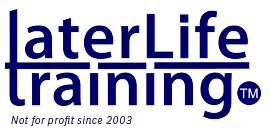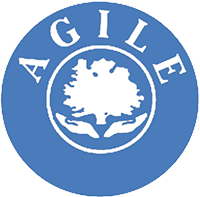This page details the evidence base behind REACT Training. REACT (REtirement in ACTion) is a community-based programme that combines exercise, education and social activities designed for older adults starting to show mobility decline. A full reference list appears at the end of this page.
Randomised Controlled Trial
Professor Afroditi Stathi and her team undertook a large randomised controlled study (RCT) of the effects of taking part in the REACT programme. Randomised controlled studies are the most robust methodology to show effects are not by chance or biased. The university website explaining REACT benefits is here.
Watch a brief video explaining the results here.
REACT was a comprehensive 4.5 year study involving 777 participants aged between 65 and 98 years old. These older adults were identified as beginning to have some difficulty with their mobility. The trial took place at three major sites across the UK, Bristol/Bath, Birmingham and Devon.
People that took part in the REACT intervention reported better mobility through the study. This most importantly included the final assessment which took place 24 months after the programme had started, 12 months after REACT sessions had finished. Within this 12 month period participants had been encouraged to seek self-led activities.

The intervention group demonstrated significant improvements in strength (OR = 1.88) and balance (OR = 1.96) at 12-months, but not in gait speed. In comparison to the control group, at six-and 12-months, the intervention group reported statistically significant improvements in Mobility Assessment Tool-Short Form (MAT-SF), physical component score from SF-36 questionnaire, and strength and endurance items of subjectively reported physical activity (PASE 10-item). Greater than 75% adherence (attending ≥48 of the 64 exercise sessions delivered in 12-months) was associated with superior functional outcomes.
Not only did the REACT intervention deliver enhanced mobility, it also proved to be cost effective means of delivering such health benefits. The average reduction in health care costs was £725 per person. It all begins with an idea. Thanks to the impact of increased activity amongst REACT participants, more cost savings are predicted in the long term.

Its behaviour maintenance sessions help cement confidence and increase social interaction which led to greater take up of additional physical activity outside of the REACT programme.
Participants reported that the engagement with the REACT programme was enjoyable and led to several physical, social and mental well-being benefits.
These positive benefits in the long term can lead to significant life-long cost savings in terms of NHS and personal social care.
Looking at fidelity of delivering REACT, improvements were needed to enhance delivery fidelity in future implementation of the behavioural maintenance programme of the REACT intervention. Future training of REACT session leaders and assessment of delivery fidelity needs to focus on the delivery of Goal setting and Action Planning, Modelling, Supporting Relatedness, Supporting Self-Efficacy for Physical Activity, and Managing Setbacks/ Problem Solving.
Within this trial, a sub-study looking at cognition and hippocampal volume (via MRI of the brain) showed that REACT can help maintain hippocampal volume but had no effect on cognition or cognitive abilities.
Another sub-study aimed to understand motivations in older adults receiving the REACT programme, through the lens of self-determination theory. Perceptions of autonomy, competence and relatedness were associated with adherence to the REACT programme and maintenance of an active lifestyle. Motivational support needs vary in different stages of a 12-month group-based programme (adoption and adherence) and post-intervention (long-term maintenance). Strategies to accommodate those needs include, (a) making exercise social and enjoyable, (b) understanding participants’ capabilities and tailoring the programme accordingly, (c) capitalising on group support to motivate participants to try other activities and prepare sustainable active living plans.
Publications on REACT


